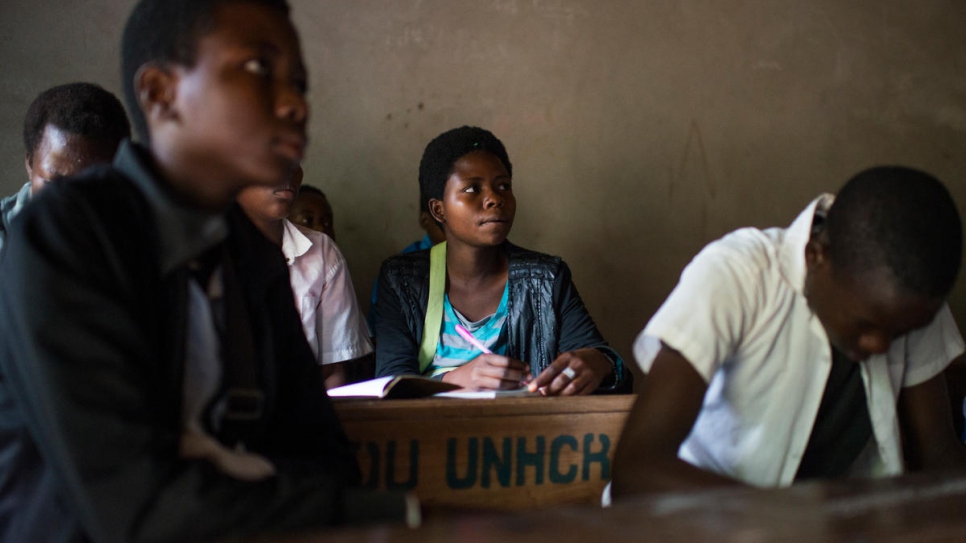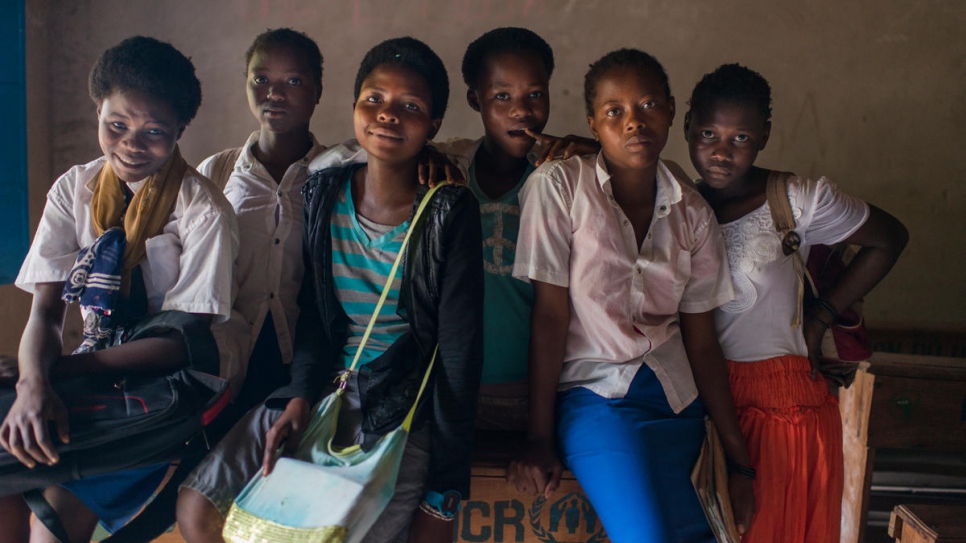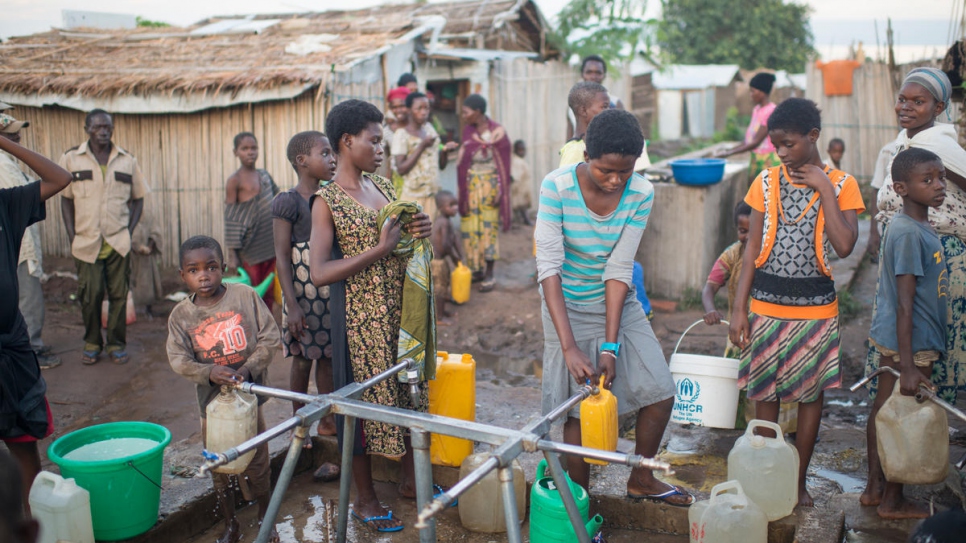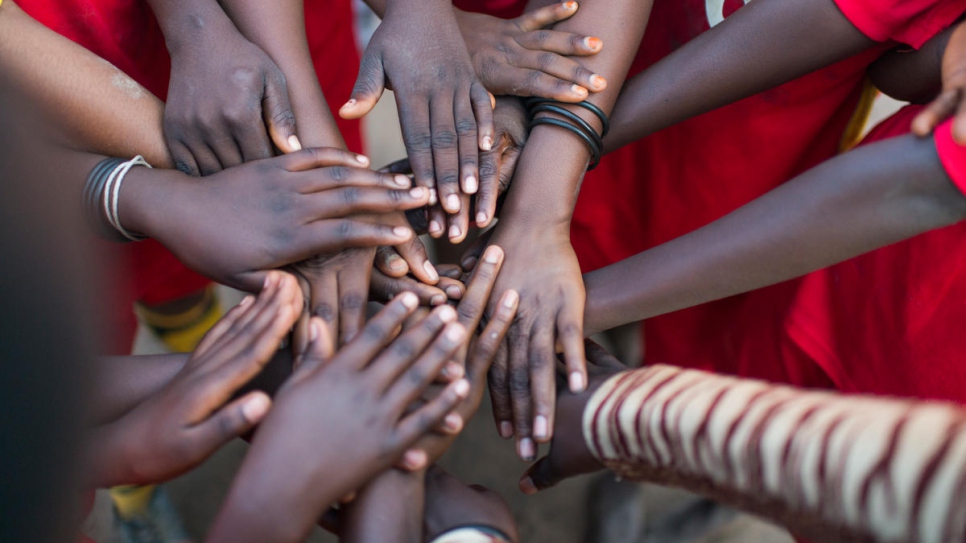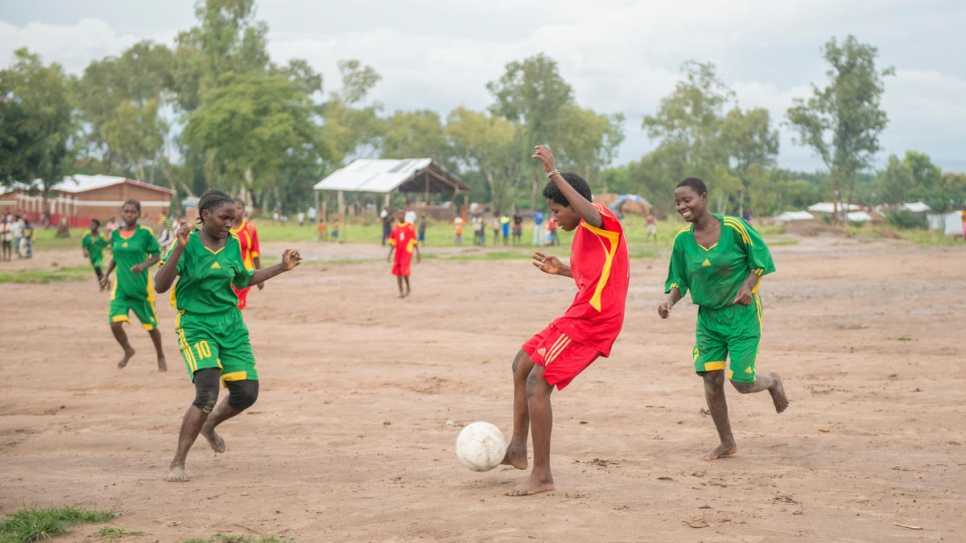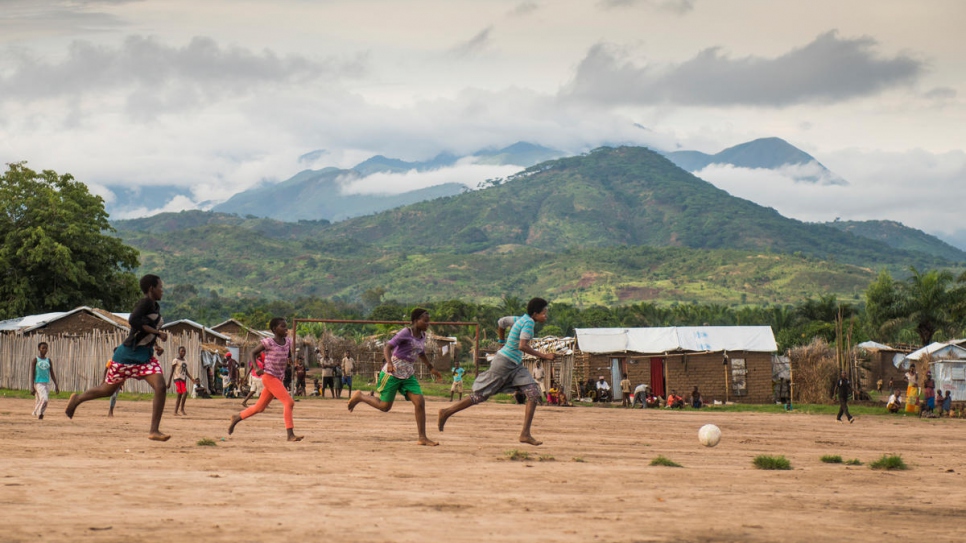“When we play, I forget that I am in a refugee camp. I think that I am in a different country. I love it so much!”
Emerance is a 16-year-old Burundian refugee who captains an all-girl football team. Her team-mates call her Neymar, after the Brazilian soccer star.
Today is a special day. Her team, the Morning Stars, will play a friendly match against another girls’ team in Lusenda refugee camp.
Emerance is sure they will win. “I believe in our team. We are the best team in this camp.”
Before the Morning Stars can play, Emerance has to deal with another exhausting day in the camp. She rises early, gets her little brother ready for school and prepares breakfast. She then walks to school in the next village.
She says she enjoys learning English and French, despite overcrowding at the school which has received support from UNHCR to take in refugees. Back at home, she cooks again for her siblings then fetches water from the pump to her parents’ home and helps with other tasks.
“They are such good players. They need to be supported.”
As match time approaches in late afternoon, the girls head for the football field, an uneven patch of bare earth. Emerance’s team wears red, the other side is in green. However, Emerance and most of the players play barefoot.
UNHCR supports refugees in Lusenda and elsewhere by providing basic sports equipment, ensuring that there are playing fields in the camps and by organizing matches. Too little funds are available to support these activities, important as they are for young people.
UNHCR has formed a partnership with the French radio station Radio France Internationale to provide additional equipment for the players in Lusenda and to tell the world about the refugees and their love of football.
The teams play hard in persistent rain, which makes the pitch slippery and play difficult. Emerance and her team have more possession of the ball but, in the end, the score is nil-nil.
“They are such good players,” says trainer Eric Itangishaka, a refugee himself and a volunteer. “They need to be supported.”
“When I play, it makes me think about the future.”
“We play well together,” says striker Spéciose, 15. “Everyone knows their role. And we are friends, too. We help each other in school.”
Playing football helps Emerance to live with difficult memories. She was 14 when she left Burundi. “It was night. I heard all these gunshots outside our house. I was afraid that a stray bullet would hit me and I would die. We started to run, the whole family, only our father was not at home. I was afraid for him, but he joined us later.”
She does still not know what has happened to her older sister, who had her own home and family and of whom they have had no news. She may have fled, too.
“It is not easy, it is not good to be a refugee,” she says. “But now it has happened and we live with it. When I play, it makes me think about the future.”
What are the most important things for her future? Emerance thinks for a second or two. “First to go to school, second to live in a decent house, third to get [medical] treatment when I need it, fourth to eat well, fifth to become a great football player and play in the United States one day.”
And a pair of football boots would also be a help.
Additional reporting: Walter Kigali, camera

